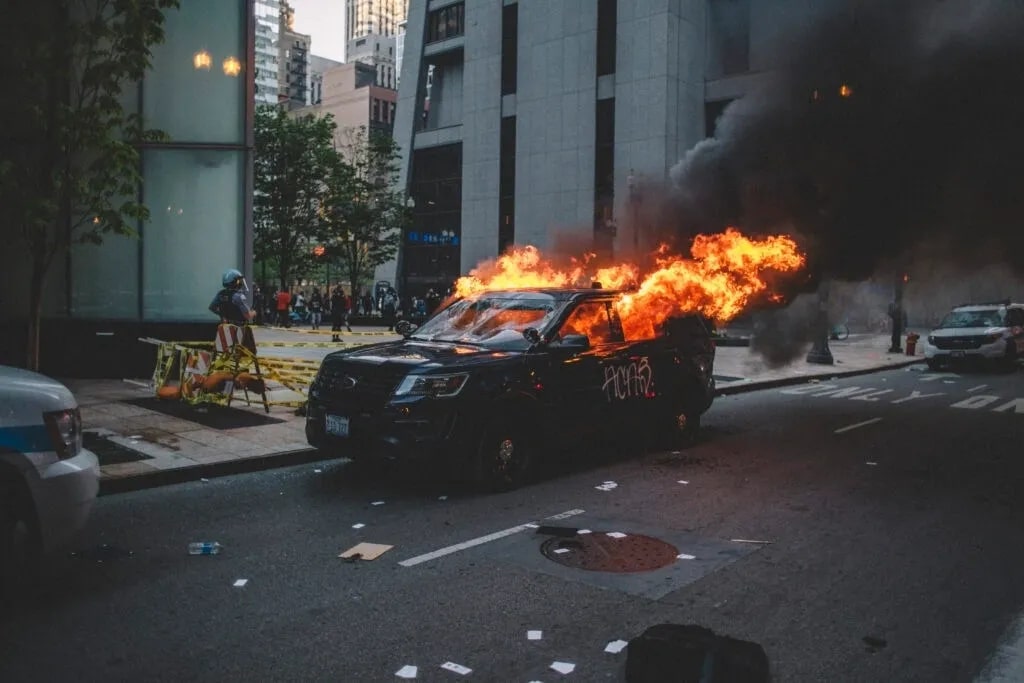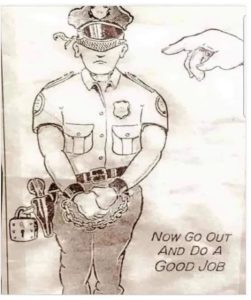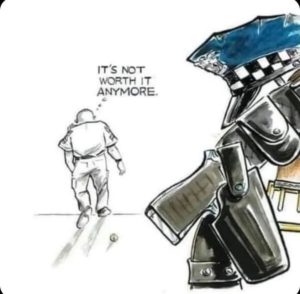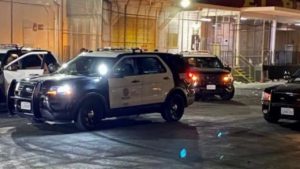Mayors from around the country are facing a common threat that isn’t just the coronavirus: spiking violent crime.
Across virtually every large urban area, a wave of violent crime has plagued residents as they struggle to adjust to new pandemic-related restrictions and a general decline in their quality of life. From bustling metropolises such as New York to sleepier cities like Salt Lake, violent crime has reached levels not seen for years or, in some cases, decades.
According to data analyst Jeff Asher, 51 major U.S. cities saw their murder rates increase this year by an average of 35.7% through September compared to 2019.
“Big cities tend to overstate national trends in crime, but the national change in murder in 2020 will be historically awful,” he wrote on Twitter.
Recommended For You Trump impersonator prepares for life after the White House Trump supporters’ ‘favorite Democrat’ Tulsi Gabbard works with GOP and plots next move Christmas Day NBA ratings take another hit after year of political messaging and criticisms
Some cities have seen an even more extreme increase. Take Louisville, for example, which saw 78 homicides in 2019. By Nov. 1 of this year, 139 had been murdered — a 78% increase. Madison, Wisconsin, the state’s capital, saw a 400% increase in homicides. In a relatively peaceful city with a population of just under 260,000, such a dramatic change means 10 people were murdered this year. In other, larger cities, significant upticks in homicides can lead to hundreds more lives lost.
In Chicago, which has seen a nearly 55% increase in murders, 728 were killed — nearly all of which through gun violence. In 2019, when the city thought it was beginning to slow the rate of murders, 470 had been killed.
For some city residents, like those who live in Los Angeles, the increase in murders hearkens back to a time when many transplants had not even moved there yet. There, murders are happening at a rate not seen in a decade, with over 300 slain this year so far.
Talk of returning to the “bad old days,” a reference to the 1970s and 1980s, when current tourist attractions such as Times Square were too dangerous to walk through past sundown, has become a fixture in New York politics as the city faces a nearly 40% increase in murders, with over 430 killed this year alone. Shootings have risen 95%, at 1,412 incidents vs. 721 in 2019. Not since 2006 has New York since seen gun-related violence this high, nor is there any evidence the trajectory will drop off, with shootings up 112% in November of this year compared to one year ago.
The scourge of inner-city violence is not limited to homicides. In Washington, D.C., 3,137 auto thefts had been reported to authorities, nearly 50% more than in 2019. Carjackings, a separate category of crime, as an occupant must be in the vehicle at the time of the theft, is up 141% over the year.
Thieves have gotten so brazen that a member of D.C.’s city council found her car was stolen after making a quick stop at a local bakery. The culprit, who has not yet been arrested, was seen jumping out of a six-figure Mercedes sports coupe just before the incident.
Questions of where to assign blame have arisen as police forces and residents are overwhelmed with what feels like a never-ending stream of violence. Some experts say the economic impact of the coronavirus has fueled violence, as many poor people find themselves increasingly desperate.
“The scheduled ending of federal relief for unemployed workers could lead some to take advantage of the increased criminal opportunities out of desperation and to supplement depleted incomes,” wrote criminologists Thomas Abt, Richard Rosenfeld, and Ernesto Lopez in a research paper released this year. “The response to the pandemic has exhausted public resources, including but not limited to police and hospitals, institutions that are crucial for responding to serious violent crime.”
Conservative critics say blaming the coronavirus for the uptick in violence is insufficient. Citing violent crime trends that started before lockdown policies began, many on the Right are blaming a significant ideological shift toward criminal justice policy on the Left.
Over the last several years, a number of left-wing prosecutors who champion “restorative justice” policies, focusing on reform and rehabilitation over penalizing lawbreakers, have taken office in a number of large cities. These individuals, many of whom saw their campaigns financed by left-wing billionaire George Soros, have turned many of their jurisdictions into an experiment of sorts for a new theory of criminal justice that represents a radical break from the “tough on crime” policies of the 1990s and 2000s.
In Illinois, for example, Cook County State Attorney Kim Foxx has cut incarcerations in Chicago and the surrounding region by nearly 20% since taking office in 2016. Foxx has also implemented controversial bail reform policies that some say allow violent offenders to roam the streets before their court date.
Lockdown policies have been credited with reducing some types of crime, namely minor offenses such as vandalism and other misdemeanors, although many public-health experts remain scratching their heads on how to explain the persistent rise of inner-city violence. Neither, some experts say, should one expect these types of crimes to remain low when social-distancing policies are eventually lifted.
“By issuing lockdowns in the wake of COVID-19, deviant peer groups — groups of relatively young people who commit minor crimes for social capital — were effectively eliminated during the duration of the lockdown,” wrote researchers John Boman and John Boman IV.






